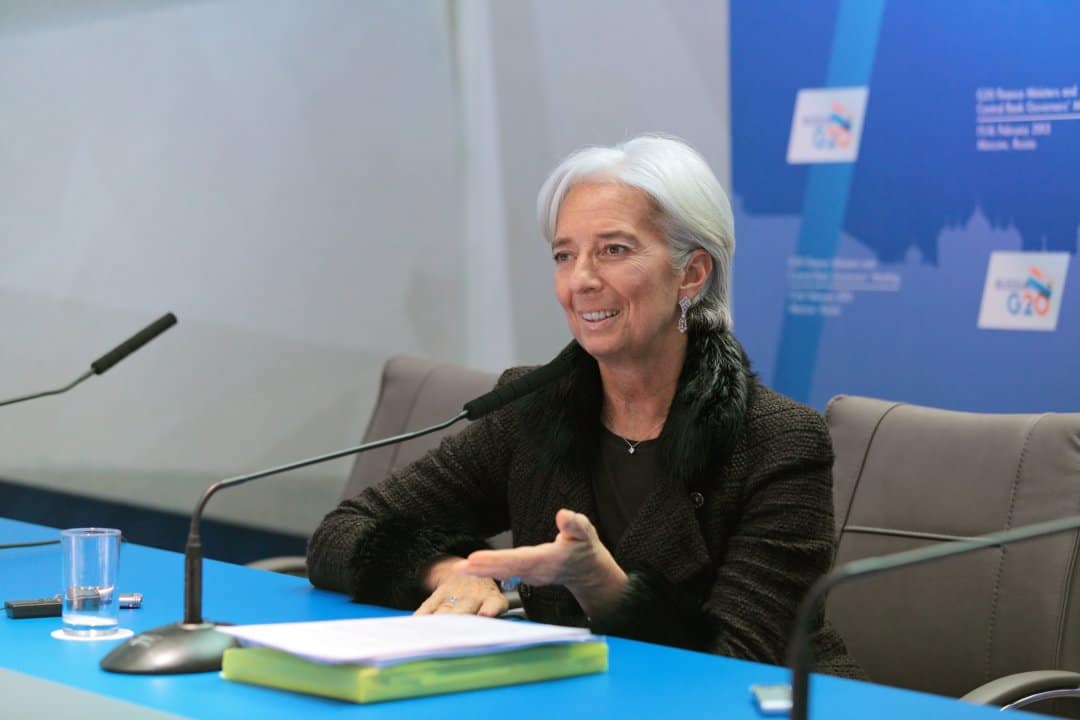Christine Lagarde, who will soon be Governor of the European Central Bank (ECB) addressed some questions about Libra, Bitcoin and cryptocurrencies.
The report by Roberto Gualtieri regarding Lagarde’s meeting with the EU’s Committee on Economic and Monetary Affairs (ECON) was published on the official website of the European Parliament.
The questions she was asked concerned possible risks to monetary stability related to the spread of cryptocurrencies such as bitcoin, what regulatory framework would she consider adequate to regulate them, and what role the ECB should have in their regard.
She was also asked about Facebook’s plans regarding the Libra stablecoin.
The truth is that Lagarde had already expressed her opinion in the past, immediately after her nomination as governor of the ECB.
This time she said that, until now, existing cryptocurrencies such as bitcoin have not had any concrete implications on monetary policies or financial stability because of the small size of the crypto market compared to the traditional financial system and their limited correlation with the regulated financial sector and the economy in general.
“In relative terms, the total market capitalisation of crypto assets globally currently stands at around 7% of the market capitalisation of the so-called “FAANG” (Facebook, Apple, Amazon, Netflix and Google), or 2% of euro area GDP and 3% / 2% of M1 / M3 respectively. This may change as the market continues to evolve and as crypto assets themselves evolve. The ECB and central banks in general clearly should closely monitor and assess developments and contribute to the ongoing international work on policy responses”.
On the subject of Libra, Lagarde said she considers it an attempt by the private sector to improve existing financial services in order to bring benefits in terms of efficiency for cross-border payments and financial inclusion.
“Such projects, and in particular their underlying blockchain or distributed ledger technology, may help bring convenience to the users and opportunities from an efficiency and safety perspective, in particular in countries where there are currently no efficient market infrastructure services in place. While crypto assets such as stablecoins and the blockchain technology on which they are based can help reap opportunities in particular in the field of cross-border payments, one has to bear in mind that their wide-spread usage could also pose risks to monetary policy, financial stability and the smooth functioning of and public trust in the global payment system”.
Christine Lagarde’s fundamentally crypto-friendly attitude has long been known, but these words now make it very clear. Obviously, she cannot overlook the inevitable risks that any innovation creates, especially with respect to traditional systems, but the emphasis she places on these risks seems almost marginal.
In this regard, she spoke about the final report of the G7 Working Group of Ministers and Governors on stablecoins, which also includes the IMF. The latter is carrying out an analysis of the benefits and risks of stablecoins in coordination with the G20, the Financial Stability Board and other competent bodies, in order to define a regulatory framework.
“As for the regulatory framework, clearly a balance needs to be struck between ensuring that these activities do not give rise to risks to financial stability while allowing for financial innovation. Lessons from existing regulation include that if the activity is inherently the same, and the risk is the same, then the regulation should be same as well. This would also reduce the risk of regulatory arbitrage where innovation does not lead to new types of services, but merely attempts to circumvent regulation. When considering regulatory approaches to complex stablecoin initiatives, it is essential to look beyond individual components and assess the entire arrangement, what some might call the ‘ecosystem'”.
Not exactly an approval without objections, but an approval nonetheless. Lagarde appears to be in favour of developing these technologies, provided that regulators limit any negative impacts on the current financial system.
Given the role she is about to play as Governor of one of the world’s most important and powerful central banks, and given that she herself will thus be one of the regulators to which she refers, it seems that her commitment is to allow the development of these technologies, provided that they are regulated in order to reduce the risks.




